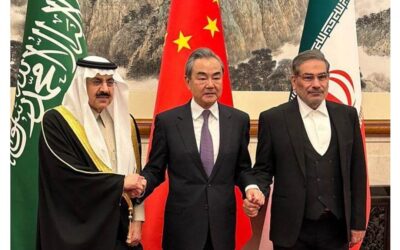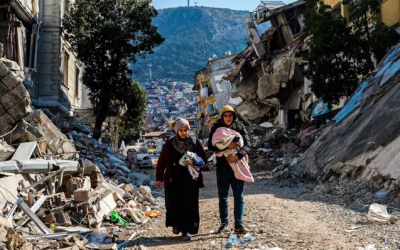In Augut 29th, Muqtada Al-Sadr announced his retirement from political life in the country. The Shiite leader’s decision sparked protests across the country, with his supporters taking to the streets of the capital to demonstrate, in a manner – however – far from peaceful. The violence ended up in numerous deaths and injuries.
The role of the Al-Sadr family
Muqtada Al-Sadr’s unexpected decision came as a bolt from the blue and caught most people off guard. Al-Sadr is in fact one of the best known and most influential public figures on the Iraqi political scene. He is a descendant of a famous and powerful Shiite family, and he has picked up the political legacy of his father Sadiq, a prominent figure and reference point for the Iraqi Shiite world in the last years of the last millennium. In fact, he has always been a thorn in the side of Saddam Hussein’s regime, opposing it and protecting the Shia majority crushed and oppressed by the Rais’ regime. His son, Muqtada, inherited from his father the same aversion to those who, over the years, attempted to impose their influence or hegemony on Iraq.
First, he stood against the military intervention and invasion of the country by the US and its allies. Then, he fought against ISIS and its attempt to establish a new Caliphate in the Middle East. Consistent with his own ideas about the independence of the Iraqi people, he also firmly opposed Iran’s influence in the country and its attempts to increase its power: in this sense, the straw that broke the camel’s back in relations with Tehran was the violent repression – also by Iranian-linked Shia militias – of the demonstrations and street protests at the end of 2019.
The rift between Al-Sadr and Iran’s political-religious elites became clear after Ayatollah Kadhim al-Haeri questioned Al-Sadr’s legitimacy to lead the Sadrist movement founded by his father, despite the fact that in the 2021 parliamentary elections he had led the Al- Sairoon party to obtain a relative majority of votes in parliament.
The Iraqi political system and the inter-ethnic and inter-religious conflict
The country’s recent political life has been shaped by the 2003 US-led international coalition military intervention: the fall of Saddam did lead to a democratic form of government, but the deconstruction of the regime, operated through the total dismantling of the Armed and Security Forces system and the delegitimization of the vast majority of the country’s political landscape – the same modus operandi used in Libya in 2011 – has also had the consequence of plunging the country into a spiral of continuous instability (abetted by the lack of a serious and structured statebuilding project on the part of the intervening Western coalition).
The ethnic and religious fragmentation that characterises the country was also reflected at the political level, so much so that since 2006 the country has been plunged into a constant state of armed conflict between Shiites and Sunnis, fuelled by the discriminatory policies of the Shiite government led by Nuri Al-Maliki between 2005 and 2014, but also implemented foreign interference.
The impact of internal dynamics on the Middle East region
The influence that domestic and foreign policy dynamics exert on each other emerges clearly in a country like Iraq. Indeed, Baghdad plays a key role within the complex regional security system, due to its internal characteristics and the peculiarities of its neighbours. First of all, internally, Iraq is home to numerous important sites and religious places revered by Shiites; in fact, around 60 per cent of the population belongs to this religious faith. However, following Al-Sadr’s retreat, the Shia community has found itself even more divided and fragmented than it already was, and it seems that Tehran has lost – starting with the episode of the 2019 protests mentioned earlier, passing through the death of Qassem Suleimani – a part of the power it wielded over the country.
Secondly, the social pact on which the country’s stability was based, i.e. that between Shiites, Sunnis and Kurds, has suffered severe shocks since the fight against ISIS, making it more difficult to reach a compromise that would allow for a government capable of leading the country. This is demonstrated by the fact that, a year or so after the last political elections, the country still lacks an executive that expresses the results of the ballot box.
These elements of instability generate concerns in the region, since many countries have an interest in Baghdad avoiding the outbreak of an internal conflict: Iran, for the reasons listed above; Turkey, which as a result of the fight against ISIS is permanently present in the north of the country, in the province of Nineveh, to conduct operations against what it identifies as terrorists (the Kurdistan Workers’ Party); Israel, which as a result of the Abraham Agreements has begun to have more or less stable and peaceful relations with many Arab states in the region, in order to curb Iranian influence.
Any ‘collateral damage’ caused by Shiite forces would lead to a new polarisation of the confrontation between Tehran and Tel Aviv, with consequences on a series of ongoing processes aimed at normalising relations between the states in the region: first and foremost, the Iranian nuclear negotiations.
Article by Andrea Meleri – taken from Istituto Analisi Relazioni Internazionali



